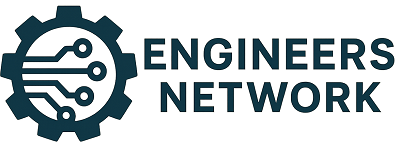Software engineering is a field that has gained immense popularity in recent years. With the rapid advancement of technology, software has become an integral part of our daily lives. However, there are various misconceptions and myths surrounding software engineering, especially regarding its perceived difficulty. In this article, we will demystify the myth and explore the question: Is software engineering hard?
Before we delve into the difficulty of software engineering, let’s first define what it entails. Software engineering is designing, developing, testing, and maintaining software systems. It encompasses various activities, including requirements analysis, software design, programming, and quality assurance. Do you know Why is software development so important? Software engineers utilize their knowledge of computer science, programming languages, data structures, and algorithms to create robust and efficient software solutions.
Is Software Engineering Hard?
The perception of whether software engineering is hard can vary from person to person. While it is true that software engineering requires dedication and continuous learning, it is important to understand that any complex field has its challenges. Here are a few factors to consider when evaluating the difficulty of software engineering:
- Learning Curve: Software engineering has a learning curve like any technical discipline. Mastering programming languages, algorithms, and software development concepts take time and practice. However, it is achievable with the right resources and a structured learning approach.
- Problem-Solving: Software engineering involves solving complex, intellectually challenging problems. It requires analytical thinking, logical reasoning, and attention to detail. Developing strong problem-solving skills is crucial for success in this field.
- Continuous Learning: Software engineering is a dynamic evolving field. Software engineers must embrace lifelong learning and adapt to new technologies, programming languages, and frameworks to stay up-to-date. This commitment to continuous learning can be both exciting and demanding.
- Collaboration and Teamwork: Software engineering often involves working in teams to develop complex software systems. Effective collaboration, communication, and coordination with team members are essential skills. Working in a team environment can present its own set of challenges.
- Time and Project Management: Developing software requires careful planning, organization, and time management. Software engineers must balance multiple tasks, meet deadlines, and handle project complexities effectively.
While software engineering may have difficulties, it is important to remember that it is an achievable and rewarding career path with dedication, passion, and the right support.
The Perceived Difficulty of Software Engineering
Software engineering has gained a reputation for being a challenging field. Many people believe that it requires exceptional intelligence and advanced mathematical skills. While these skills can certainly be beneficial, they are not the sole determining factors of success in software engineering. It is important to understand that software engineering is a skill that can be learned and mastered with dedication and practice.
Factors That Make Software Engineering Challenging
Several factors contribute to the perceived difficulty of software engineering. Let’s explore some of the key challenges software engineers face:
Complex Problem Solving
Software engineers are tasked with solving complex problems regularly. They must analyze requirements, break problems into manageable components, and design efficient solutions. This requires critical thinking, creativity, and navigating through intricate technical challenges.
Continuous Learning and Adaptation
Technology evolve rapidly, and software engineers must keep up with the latest advancements in their field. They must continuously learn new programming languages, frameworks, and tools to stay relevant. This ongoing learning process can be demanding but is also an exciting aspect of software engineering.
Technical Depth and Breadth
Software engineering covers various topics, from low-level systems programming to high-level web development. Software engineers must have a strong foundation in computer science principles, data structures, algorithms, and software architecture. They must possess a breadth of knowledge to tackle different projects and challenges.
Collaboration and Communication
Software engineering is rarely a solitary endeavor. It often involves working in teams, collaborating with designers, product managers, and other stakeholders. Effective communication and collaboration skills are crucial for ensuring everyone is on the same page and working towards a common goal. When it comes to financial advisory, finding the right software can make all the difference in providing accurate and efficient services to clients.
Skills Required in Software Engineering
To excel in software engineering, several key skills are essential. These include:
1. Programming
A solid foundation in programming languages like Java, C++, Python, or JavaScript is crucial. Understanding syntax, control structures, data types, and algorithms is vital for developing efficient and robust software.
2. Data Structures and Algorithms
Data structures and algorithms enable software engineers to solve complex problems efficiently. It involves understanding concepts like arrays, linked lists, trees, graphs, sorting algorithms, searching algorithms, and more.
3. Computer Science Fundamentals
A strong grasp of computer science fundamentals, including computer architecture, operating systems, databases, and networks, is necessary. These concepts provide a deeper understanding of how software interacts with hardware and other systems.
4. Problem-Solving Skills
Software engineers need to be adept problem solvers. They must analyze problems, break them down into manageable components, and devise effective solutions. This requires logical thinking, creativity, and the ability to approach challenges systematically.
5. Collaboration and Communication
Software engineering often involves working in teams. Effective collaboration and communication skills are crucial for successful project completion. Software engineers must be able to communicate their ideas, understand others’ perspectives, and work together towards a common goal.
Is Software Engineering Hard to Get a Job?
Software engineering has emerged as one of the most sought-after professions recently. As technology evolves, businesses of all sizes rely heavily on software applications to streamline operations, enhance productivity, and deliver exceptional user experiences. Consequently, the demand for skilled software engineers has grown exponentially.
Skillset and Educational Requirements
Entering the field of software engineering requires a solid foundation in computer science and programming. While it may seem daunting initially, the path to becoming a software engineer is well-defined and can be navigated with the right mindset and dedication.
To secure a job in software engineering, you’ll need a strong understanding of programming languages such as Python, Java, or C++, along with proficiency in software development frameworks and tools. A degree in computer science, software engineering, or a related field can significantly bolster your credentials and increase your chances of landing a job.
Job Market and Opportunities
The software engineering job market offers a plethora of opportunities for skilled professionals. Organizations across various industries, from startups to multinational corporations, require software engineers to develop innovative solutions and maintain their digital infrastructure.
While competition may exist in certain regions, the demand for talented software engineers remains high. By honing your skills, gaining practical experience through internships or personal projects, and staying up-to-date with emerging technologies, you can position yourself as a competitive candidate in the job market.
Overcoming Challenges in Software Engineering
While software engineering may present challenges, strategies exist to overcome them and succeed in the field. Here are some tips for aspiring software engineers:
Developing a Strong Foundation
Building a strong foundation is essential for success in software engineering. Start by deeply understanding computer science fundamentals, such as data structures, algorithms, and programming languages. This knowledge forms the basis for solving complex problems and mastering advanced concepts.
Gaining Practical Experience
Theory alone is not sufficient in software engineering. Practical experience is invaluable for developing skills and gaining confidence. Work on real-world projects, contribute to open-source software, and seek internships or part-time positions to apply your knowledge practically.
Leveraging Resources and Support
The software engineering community is vast and supportive. Take advantage of online resources, forums, and communities to connect with experienced professionals and learn from their insights. Networking and mentorship can provide guidance and help you navigate the challenges of the field.
The Rewards of Software Engineering
The difficulty of software engineering can vary from person to person. Some individuals may find certain concepts or programming languages more challenging than others. However, anyone can learn and excel in software engineering with dedication, persistence, and a growth mindset. It is important to approach the learning process with patience and a willingness to improve continuously.
While software engineering may present challenges, it also offers numerous rewards. Here are some reasons why many professionals find software engineering fulfilling:
- High-Paying Salaries: Software engineers often enjoy competitive salaries due to the demand for their skills and expertise.
- Intellectual Stimulation: Software engineering involves solving complex problems and constantly learning new technologies, providing intellectual stimulation and opportunities for personal growth.
- Job Opportunities: The field of software engineering offers a wide range of job opportunities in various industries, including tech giants, startups, and research organizations.
- Impact and Innovation: Software engineers have the power to create innovative solutions that can impact millions of people worldwide, making a positive difference in society.
Tips for Success in Software Engineering
To excel in software engineering, consider the following tips:
- Embrace a Growth Mindset: Approach software engineering with a growth mindset, believing that your abilities can be developed through dedication and hard work. Embrace challenges as opportunities for learning and improvement.
- Build a Strong Foundation: Focus on building a strong foundation in programming languages, data structures, and algorithms. These fundamentals serve as the building blocks for advanced software engineering concepts.
- Practice Regularly: Regular practice is key to improving your coding skills. Solve coding challenges, work on small projects, and actively participate in coding communities to sharpen your abilities.
- Learn from Others: Engage with the software engineering community by attending meetups, conferences, and online forums. Collaborate with fellow developers, share knowledge, and learn from their experiences.
- Seek Mentorship: Find mentors who can guide your software engineering journey. Their insights and experience can provide valuable guidance, accelerate your learning, and offer advice on career advancement.
- Stay Curious and Up to Date: Software engineering is a rapidly evolving field. Stay curious, explore new technologies, and stay up-to-date with industry trends. Continuously learning and adapting will keep you ahead of the curve.
- Develop Soft Skills: Besides technical skills, soft skills such as communication, teamwork, and problem-solving are crucial for success in software engineering. Work on improving your interpersonal skills to collaborate effectively with others.
- Build a Portfolio: Create a portfolio of projects that showcase your skills and accomplishments. A portfolio demonstrates your practical experience and can help you stand out during job interviews.
Conclusion
Many people wonder how hard is software engineering, but the truth is that it’s not an inherently “hard” field. Rather, it requires dedication, continuous learning, and problem-solving skills. With the right mindset and a commitment to self-improvement, anyone can succeed in software engineering. Embrace the challenges, leverage available resources, and keep up with the latest advancements to thrive in this ever-evolving industry.
FAQs (Frequently Asked Questions)
Q: How long does it take to become a software engineer?
A: The time required to become a software engineer varies based on individual circumstances and learning pace. Acquiring the necessary skills and knowledge typically takes several years through education, practical experience, and self-study.
Q: Do I need a degree in computer science to become a software engineer?
A: While a degree in computer science can be advantageous, it is not always a strict requirement. Practical experience, certifications, and a strong portfolio of projects can also be valuable in securing software engineering positions.
Q: Is software engineering a good career choice?
A: Yes, software engineering can be a rewarding career choice. It offers excellent job prospects, competitive salaries, intellectual stimulation, and professional growth and impact opportunities.
Q: What programming languages should I learn for software engineering?
A: The choice of programming languages depends on the type of software engineering you wish to pursue. Some popular languages include Java, Python, JavaScript, C++, and Ruby. It is beneficial to have a good understanding of multiple languages and frameworks.
Q: Can I transition to software engineering from a different career?
A: Yes, transitioning to software engineering from a different career is possible. It may require additional learning and acquiring relevant skills, but you can successfully transition with determination and a focused approach.
Tags: IQ, math, misconceptions, myths, programming, software engineering






Leave a Reply